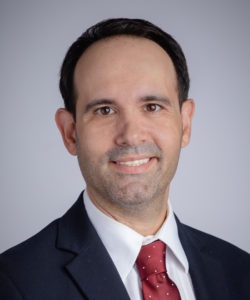Navigating the intricate balance between freedom of speech and the confines of a regulated profession is not easy these days, especially with the prevalence of social media. This was precisely the challenge the Ontario Superior Court of Justice faced in the headline-grabbing case of Peterson v College of Psychologists of Ontario.
The court sided against the renowned psychologist and media heavyweight Dr. Jordan Peterson in a decision that sent ripples across the media landscape. It upheld the directive of a regulatory board demanding Dr. Peterson undergo social media training in response to a barrage of criticisms over his often controversial online remarks.
Last November, Dr. Peterson, a distinguished professor emeritus at the University of Toronto’s psychology department and a respected media commentator, found himself under the lens of the College of Psychologists of Ontario’s Inquiries, Complaints and Reports Committee (“ICRC”). His digital footprints—specifically comments targeting politicians, a plus-sized model, and transgender actor Elliot Page—had evoked numerous complaints, prompting the ICRC to take action.
The ICRC, alarmed by Dr. Peterson’s contentious statements, speculated that they might cross into the territory of professional misconduct. As a result, they mandated a media coaching regimen for Dr. Peterson, cautioning that failing to comply might strip him of his psychology practicing license in Ontario. Standing his ground, Dr. Peterson petitioned for a judicial review, arguing his statements were political opinions, not subject to the college’s purview.
Justice Schabas, writing for the court, ultimately turned down Dr. Peterson’s plea. The core of this review wasn’t to challenge the ICRC but to evaluate the logic behind their decision, given the data they had.
The ICRC, primarily a review committee, doesn’t hold evidence-based hearings. However, it can pivot cases towards disciplinary hearings if deemed necessary. After poring over Dr. Peterson’s comments and factoring in past grievances, the ICRC advised him to enroll in a program centered on public statement professionalism.
This directive was primarily influenced by Dr. Peterson’s words on platforms like Twitter and the Joe Rogan podcast. The ICRC, expressing concern, labeled his comments as potential threats to the public’s faith in psychology and the college’s self-regulatory abilities.
The ICRC’s directive was clear: Dr. Peterson needed coaching to refine his public communication skills. Failure to adhere within a set timeframe, with costs on him, might elevate the matter to a disciplinary level.
Responding to Dr. Peterson’s defense of expressing “off-duty opinions,” Justice Schabas highlighted their public nature, noting their clash with the Canadian Code of Ethics for Psychologists. Justice Schabas was firm: Dr. Peterson can’t selectively leverage his professional status while sidestepping the attached responsibilities.
Diving into the constitutional right of freedom of expression, Justice Schabas articulated that while regulated health professionals retain such rights, they’re bound by regulatory rules, which might occasionally clip their expressive wings. In his view, the ICRC’s deliberations struck a harmonious balance between Dr. Peterson’s expressive rights and the public’s interest in principled communication.
Ultimately, the court deemed the ICRC’s judgment a well-considered exercise of their duty, without suppressing Dr. Peterson’s expressive freedoms. The verdict, remedial at its core, doesn’t muzzle Dr. Peterson from diving into contentious debates.
This landmark decision may raise more questions than answers and will urge policymakers and professionals to introspect the interplay of expression and professional decorum.
As the legal saga continues, Dr. Peterson’s team is gearing up for an appeal to the Ontario Court of Appeal.
Related Services:
Commercial & Business Litigation
About the Author:
 Daniel Waldman is Of Counsel in the firm’s Toronto office. He has a broad commercial litigation practice with an emphasis on real property litigation, including commercial leasing, commercial real estate, construction law, and debt collection. Daniel can be reached at 416-644-2838 or dwaldman@dickinsonwright.com. To read his full bio, please click here.
Daniel Waldman is Of Counsel in the firm’s Toronto office. He has a broad commercial litigation practice with an emphasis on real property litigation, including commercial leasing, commercial real estate, construction law, and debt collection. Daniel can be reached at 416-644-2838 or dwaldman@dickinsonwright.com. To read his full bio, please click here.
